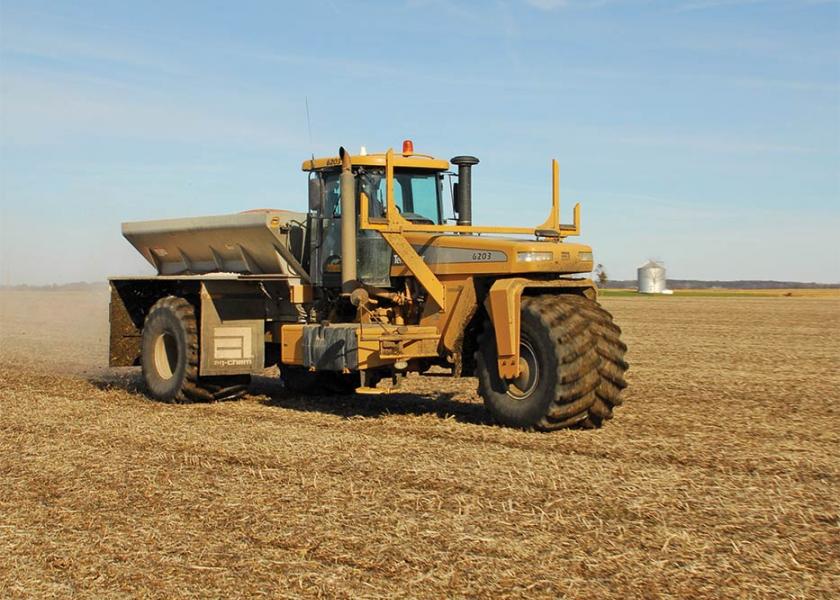Although China purchased a record amount of U.S. farm exports over the past two years, it wasn’t...
U.S. and Brazil Can Expect a Greater Supply of Fertilizer

Key commodity growing markets in the Americas, particularly Brazil and the U.S., can expect a “healthier supply” of fertilizers than last year, according to the latest Rabobank North American Agribusiness Review.
Growers may also see further downward price pressure on phosphates and potash, as the market adjusts to the Russia-Ukraine conflict. Russian potash and phosphate are flowing out more fluidly and domestic intermediaries are “comfortable enough” on supply.
News is a little less optimistic for nitrogen, with base case forecasts predicting a 20% to 30% price increase at the wholesale level between now and the end of the year.
A potentially double-digit percentage increase is expected for seed pricing heading into 2023.
WHY IT MATTERS
Globally, input prices for ag commodities soared to all-time highs this year with supply chain chaos brought about by war, the pandemic, and climate change proliferated.
According to a recent survey from Purdue University’s Center for Commercial Agriculture, high input costs remain a top concern for farmers heading into the next year, with 44% of U.S. farmers citing those costs as their biggest concern.
Rabobank says year-over-year potash prices are currently “30% higher at the wholesale level today, while phosphates are 20% to 25% up over the same period.” Fertilizers typically include these inputs.
However, Rabobank’s report notes year-over-year comparisons don’t fully capture the pricing volatility from the last several months. At the height of the volatility and price surges – post commencement of the war in Ukraine – phosphate prices were ~60% over August 2021 prices, while potash prices reached 80% above.
One silver lining: supply chain and pricing volatility have created more opportunities for start-ups with alternatives to synthetic fertilizers to flourish and for technologies that can help growers reduce the amount of inputs they need overall.
Ag biotech companies, which include those making biological alternatives as well as gene editing start-ups that can reduce the need for inputs, raised $2.6 billion across 209 deals in 2021, according to AgFunder’s 2022 AgriFoodTech Investment Report.
Despite the general tech downturn right now, start-ups in this space have continued securing deals, including U.S.-based Anuvia Plant Nutrients‘ Series D round, UK ag gene-editing start-up Tropic Biosciences‘ $35 million, and a $3.7 million raise for Argentina’s Puna Bio.
Editor’s Take:
Seed and fertilizer are critical in modern farming operations. They are the basis for creating a harvestable crop and producing a return on the farmer’s land, labor, machinery and management. Without those critical ingredients, we could all suffer from shortages of food, animal feed, fuel, such as ethanol or biodiesel, and clothing. That is why having more fertilizer available and potentially at a somewhat lower cost for some components, is very good news. Assuming this prediction comes to fruition, it will mean even more money in farmers' and ranchers' bank accounts at the end of the year to purchase new trucks. Keep those ads on AgTruckTrader.com so you can get their attention. If you are not currently on AgTT, there’s still time until the end of this year to give it a test run for free! Sign up today….








